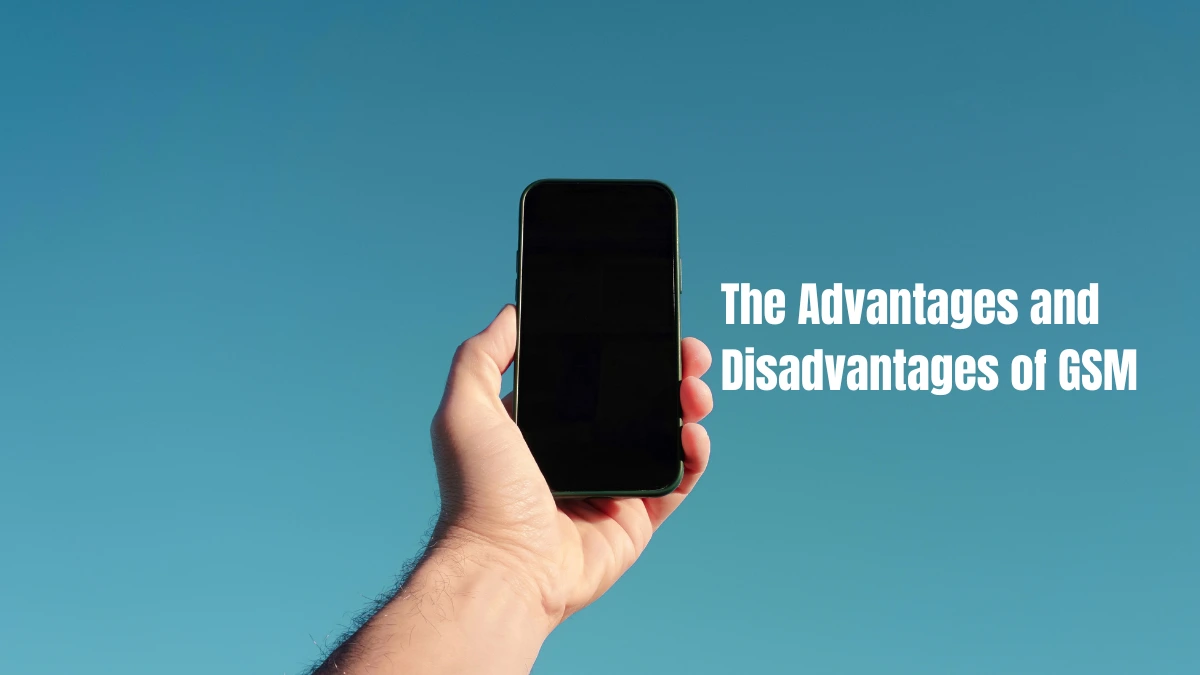We can enjoy the Global System for Mobile Communications (GSM) with all its benefits in everyday life. However, the advantages and disadvantages of GSM cannot be denied and need to be taken into consideration.
The advantages and disadvantages of GSM include technology, network, signals, and compatibility with various devices.
In this article, we will share 20 advantages and disadvantages of GSM that you need to know to consider when using it.
The Advantages and Disadvantages of GSM

1. GSM provides highly cost-effective products and solutions.
2. Provides seamless wireless connectivity. Makes international roaming a non-issue.
3. Advanced versions of GSM with more antennas will provide high-speed data downloading and uploading.
4. SAIC and DAIC techniques provide very high transmission quality. SAIC stands for Single Antenna Interference Cancellation technique while DAIC stands for Double antenna interference cancellation.
5. GSM network maintenance is easy because network technicians are available in large numbers at affordable costs. This will help increase telecommunications operator revenues.
6. This phone works based on SIM cards so it is easy to change different types of phones by the user. It also allows to save user data and preferences.
7. GSM signals do not suffer from quality degradation inside offices and homes and offer good voice call quality due to the digital coding and error correction techniques used.
8. Easy to integrate GSM technology stack with other wireless technology-based devices like CDMA, LTE, etc.
9. GSM combines encryption and authentication measures, making it more secure than analog systems.
10. GSM specifications allow devices and networks from different vendors to work together without any technical issues.
11. GSM technology is energy efficient, which is important for mobile devices with limited battery capacity.
The Disadvantages of GSM

1. GSM technology is patented by Qualcomm and, therefore a license must be obtained from them.
2. To increase coverage, it is necessary to install repeaters.
3. GSM provides limited data rate capabilities, for higher data rates, advanced versions of GSM devices are used.
4. GSM has limited bandwidth. Here multiple users share the same bandwidth and hence it will cause interference when more users use the GSM service.
5. GSM uses pulse-based burst transmission technology and therefore interferes with certain electronic devices. Therefore, airplanes, fuel stations, and hospitals prohibit the use of GSM-based cell phones or other gadgets.
6. Even though they are encrypted, GSM networks are vulnerable to hacking and eavesdropping.
7. Although widespread, GSM coverage may not be available in very remote or undeveloped areas as well as areas served by other cellular technologies such as 4G LTE and 5G NR (New Radio).
8. GSM network performance depends on the quality and capacity of the backhaul infrastructure, which may be inadequate in some areas.
9. Older GSM devices may not be compatible with new networks and require users to upgrade their devices.
These are some of the advantages and disadvantages of GSM that you can consider when using this product. Hopefully, this article is useful to increase your knowledge about GSM.
As additional information, every GSM product on the market must go through a test and certification process first. If you have difficulty taking care of the test and certification process, our Type Approval Service are ready to help. [UN]

